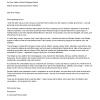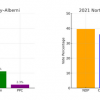Dear Global Citizens,
We, the majority of citizens of the United States, wish to extend our sincerest apologies for the actions and rhetoric of our former president, Donald Trump. His tenure has been marked by divisiveness, hostility, and policies that have often contradicted the values of compassion and cooperation that many of us hold dear. As we reflect on his impact, we recognize the hurt and harm that his words and actions have caused across the globe.
It is crucial to understand that while Donald Trump held the office of the presidency, he did not represent the views of all Americans. In both the 2016 and 2020 elections, he lost the popular vote, demonstrating that a significant majority of citizens do not endorse his vision for our nation or for the world. The support he garnered was not reflective of a universal agreement with his policies; rather, it highlighted deeper issues within our political system.
We believe that a substantial portion of Trump's support stems from a systemic failure in American governance, particularly regarding education. For years, Congress—especially the Republican Party—has neglected to prioritize and adequately fund educational initiatives. This lack of investment in education has led to a populace that may be more susceptible to misinformation and demagoguery. When citizens are not equipped with critical thinking skills or access to quality education, they become vulnerable to charismatic leaders who exploit their fears and insecurities.
Education plays a vital role in shaping informed citizens who can engage constructively in democratic processes. It fosters understanding, tolerance, and global awareness—qualities that are essential in an interconnected world. Unfortunately, many Americans have been left behind by a system that too often prioritizes political gain over the betterment of society. The ramifications of this neglect have been profound, allowing divisive figures to gain traction and manipulate public sentiment.
We recognize that while individuals like Donald Trump may rise to prominence, they do so against a backdrop of societal issues that require urgent attention. As citizens of the United States, we are committed to advocating for educational reforms that empower all individuals with the knowledge and tools necessary to navigate an increasingly complex world. We believe that through investing in education, we can cultivate a more informed citizenry capable of rejecting the divisive politics that have characterized recent years.
To our fellow citizens around the globe, we ask for your understanding as we work towards healing and rebuilding trust. The actions of one leader do not define an entire nation. We strive for a future where our representatives reflect our shared values of respect, compassion, and collaboration. We hope to engage in meaningful dialogue that transcends borders, fostering a spirit of unity rather than division.
In closing, we apologize for the pain caused by Donald Trump's presidency and pledge our commitment to ensuring that such rhetoric and policies do not define our nation’s future. Together, let us work towards a world where education is prioritized, understanding prevails, and cooperation is the norm.
Sincerely,
The Majority of Citizens of the United States
========================================
Here are some references and citations that highlight the failures of Congress, particularly regarding the funding and support of education initiatives in the United States:
National Center for Education Statistics (NCES) - The NCES reports on federal funding for education and highlights trends in education spending over time. For example, while federal funding has increased, it often does not keep pace with inflation or the growing needs of schools. The NCES provides comprehensive data on federal, state, and local education funding.
Reference: National Center for Education Statistics. (2020). "Digest of Education Statistics." Available at NCES
https://nces.ed.gov/programs/digest/
Funding Gaps Report - A report by the Education Trust titled "Funding Gaps 2018" examines the disparities in funding between high-poverty and low-poverty school districts. It highlights how inadequate funding perpetuates inequities in education.
Reference: The Education Trust. (2018). "Funding Gaps 2018." Available at Education Trust
https://edtrust.org/resource/funding-gaps-2018/
No Child Left Behind Act - The No Child Left Behind Act (NCLB), enacted in 2001, aimed to improve educational outcomes but was criticized for underfunding its goals. Many states struggled to meet NCLB requirements without adequate federal support.
Reference: U.S. Department of Education. (2010). "A Blueprint for Reform: The Reauthorization of the Elementary and
Secondary Education Act." Available at Department of Education
Every Student Succeeds Act (ESSA) - The ESSA, passed in 2015, replaced NCLB but has also faced criticism regarding funding. While it provides more flexibility to states, many argue that it does not address the fundamental issues of funding inequities.
Reference: U.S. Department of Education. (2015). "Every Student Succeeds Act." Available at Department of Education
Center on Budget and Policy Priorities - This organization has published several reports detailing the decline in state funding for education since the Great Recession, showing how Congress's inaction has led to significant budget shortfalls for education.
Reference: Center on Budget and Policy Priorities. (2021). "States Have Cut School Funding by $20 Billion Since Last Recession." Available at CBPP
These references provide a foundation for understanding the challenges and failures Congress has faced in supporting and funding education initiatives in the United States. They can be used to further substantiate claims regarding the impact of inadequate education funding on American society.















